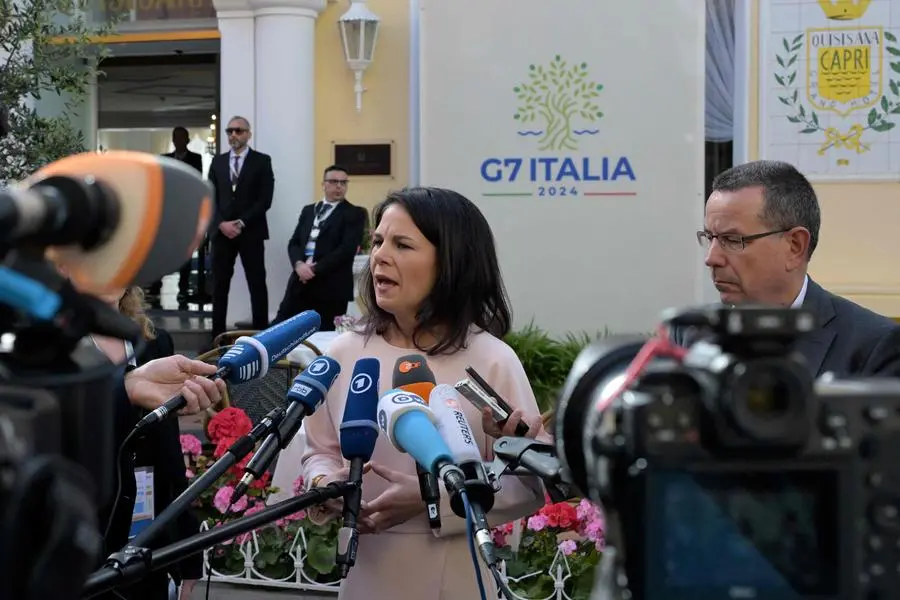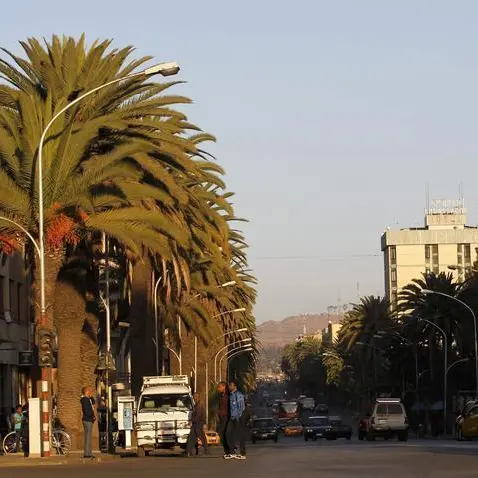PHOTO
The G7 must respond to Iran's attack on Israel, Germany's foreign minister said Thursday, adding that measures were being discussed with her counterparts at a meeting in Italy.
"We are also discussing further measures here at the G7, because of course there must be a response to this unprecedented incident," Annalena Baerbock told reporters on the island of Capri.
She added however that "there must be no further escalation in the region, that would be fatal for its people".
The G7 nations -- France, Germany, Italy, the UK, the United States, Canada and Japan -- are expected to call for individual sanctions against people implicated in Iran's missile supply chain, according to an Italian diplomatic source.
European Union leaders agreed Wednesday to impose new sanctions on Iran's drone and missile producers over the weekend attack, which caused little damage after most of the projectiles were intercepted.
"We will have to review the system" of sanctions "in order to enlarge it and make it more efficient", EU foreign policy chief Josep Borrell -- who was also invited to Capri -- told reporters Thursday.
He said that since July 2023 there have been limits on exports to Iran by European firms of "the components that allow the production of these kind of arms".
"So we will increase it," he said.
"The important thing is the implementation of our decision," he added.
He also called for restraint from Israel, saying the region was "on the edge" of war.
The United States, Israel's top ally, has said it would soon impose new sanctions on Iran's missile and drone programme and said it expects allies to follow with parallel measures.
Iran's drone and missile attack, launched in response to a deadly strike on Iran's Damascus consulate widely blamed on Israel, has ratcheted up already sky-high tensions with the Israel-Hamas war raging in Gaza.
Baerbock and Britain's foreign minister David Cameron visited Israel on Wednesday, where they called for calm amid fears Israel will retaliate.
Cameron urged the G7 to adopt new "coordinated sanctions" against Iran, which he accused of being "behind so much of the malign activity in this region".
The G7 ministers were discussing the Middle East situation on Thursday morning, followed by a session on the Huthi attacks in the Red Sea that have disrupted global shipping.
They will then join special guests NATO Secretary General Jens Stoltenberg and Ukrainian Foreign Minister Dmytro Kuleba for talks on the war in Ukraine.





















